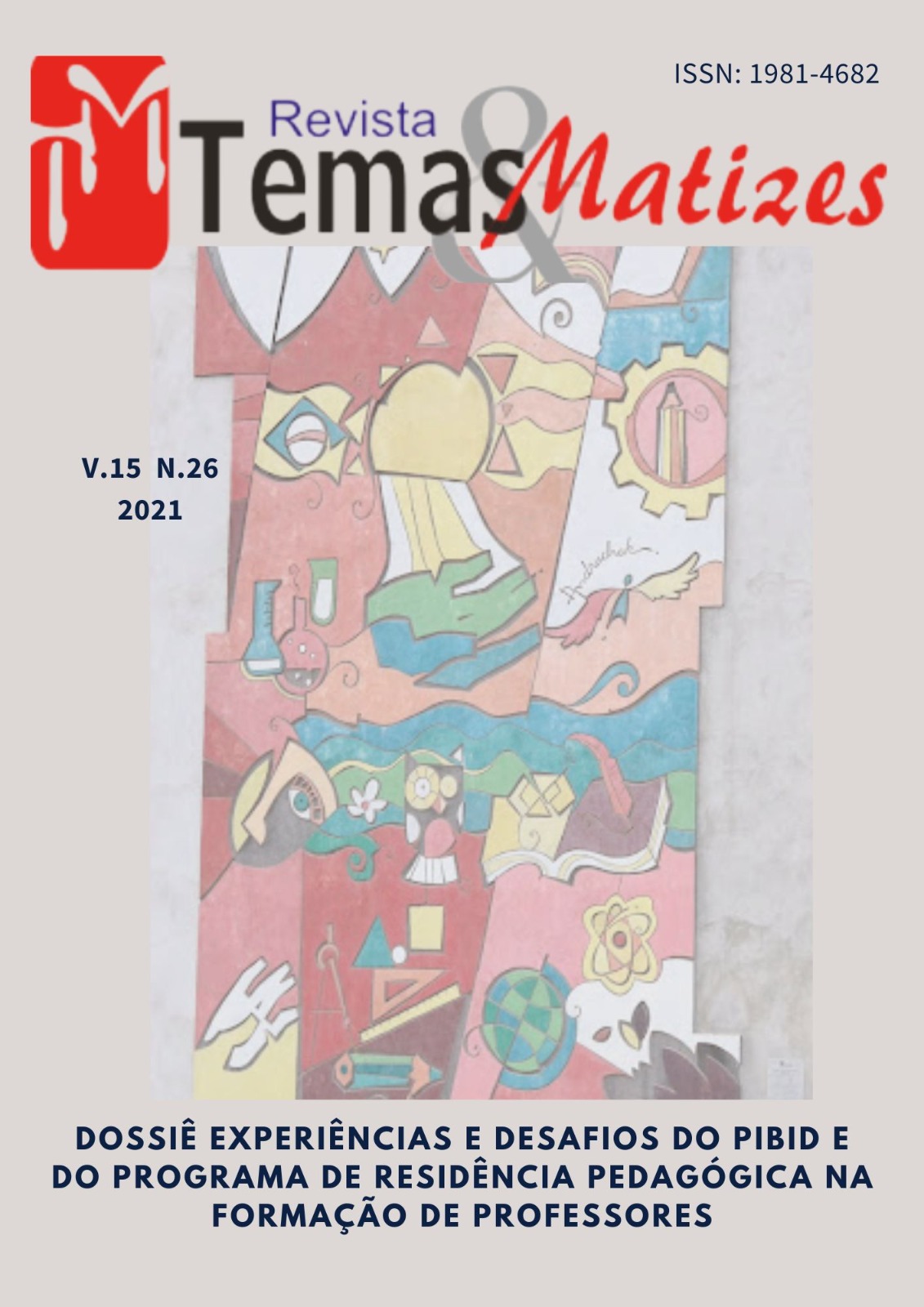The The Practice of Storytelling During The Pandemic
DOI:
https://doi.org/10.48075/rtm.v15i26.28655Abstract
This work is a result of one of the subprojects developed by scholarship holders of the Institutional Teaching Iniciation Scholarship Program (PIBID) about initial reading instruction and literacy which sub-themes are tell stories to the pupils of the initial primary grades of two public schools in Cascavel - PR. The research aimed to analyze the importance of storytelling during child development and how its practice contributed as to the formation of new readers, as for the methodological enrichment of the storyteller teacher, since the practice of this activity can be used as a mean of knowledge mediation from stories that reflect social issues. It also sought to reflect on the new methodological guidelines implemented on education during the COVID-19 pandemic, as well as to describe through an experience report the results of the developed activity. For the theoretical discussion, a bibliographic survey was carried out by using authors who had approached the relation between storytelling and the children development, of these, it is possible to highlight, Cardoso (2016); Waterfall (2014); Freire (1989) and Sanches (2016). It has been noted that the pandemic and the social isolation extension dramatically changed people's way of life. Regarding to Brazilian education system changes, it was realized that with the implementation of online classes, many students had difficulties about how to adapt to these changes and how to deal with a lot of emotions at the same time (anxiety, stress, demotivation), and in this aspect the present study, which also deals with the relation of storytelling and learning, has proved to be an effective alternative both by promoting the well-being of those involved, bringing closer the bonds among family, school and teacher, and by making possible to the educators to transmit through the story reflections about social issues in a playful way.
Downloads
Published
How to Cite
Issue
Section
License

This work is licensed under a Creative Commons Attribution-NonCommercial-ShareAlike 4.0 International License.
Aviso de Direito Autoral Creative Commons
Política para Periódicos de Acesso Livre
Autores que publicam nesta revista concordam com os seguintes termos:
1. Autores mantém os direitos autorais e concedem à revista o direito de primeira publicação, com o trabalho simultaneamente licenciado sob a Licença Creative Commons Attribution que permite o compartilhamento do trabalho com reconhecimento da autoria e publicação inicial nesta revista.2. Autores têm autorização para assumir contratos adicionais separadamente, para distribuição não-exclusiva da versão do trabalho publicada nesta revista (ex.: publicar em repositório institucional ou como capítulo de livro), com reconhecimento de autoria e publicação inicial nesta revista.
3. Autores têm permissão e são estimulados a publicar e distribuir seu trabalho online (ex.: em repositórios institucionais ou na sua página pessoal) a qualquer ponto antes ou durante o processo editorial, já que isso pode gerar alterações produtivas, bem como aumentar o impacto e a citação do trabalho publicado (Veja O Efeito do Acesso Livre).
Licença Creative Commons
Esta obra está licenciada com uma Licença Creative Commons Atribuição-NãoComercial-CompartilhaIgual 4.0 Internacional, o que permite compartilhar, copiar, distribuir, exibir, reproduzir, a totalidade ou partes desde que não tenha objetivo comercial e sejam citados os autores e a fonte.


